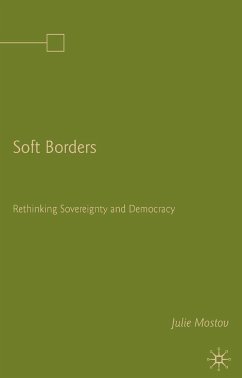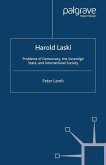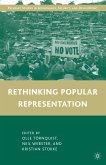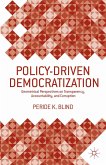Dieser Download kann aus rechtlichen Gründen nur mit Rechnungsadresse in A, B, BG, CY, CZ, D, DK, EW, E, FIN, F, GR, HR, H, IRL, I, LT, L, LR, M, NL, PL, P, R, S, SLO, SK ausgeliefert werden.
"In Soft Borders, JulieMostovweaves apolitical theory of borders around their operative contingency andpervasive injustice in the world of globalization.Explaining why hard borders foster a violent, exclusionary, and repressive politics of ethnocracyby fixing and naturalizing difference and creating vulnerable "others" inside and outside national boundaries, she argues persuasively for a viable alternative,already in the making: "soft" border practices and institutions designedto securetransnational citizen rights in spaces of human mobility." - David Ludden, Professor of Political Economy and Globalization, History Department, New York University









